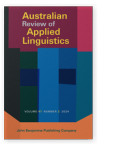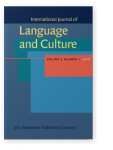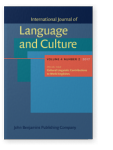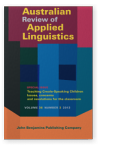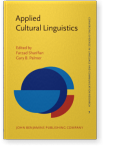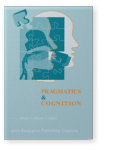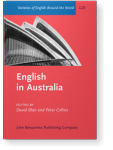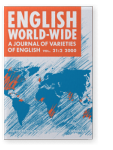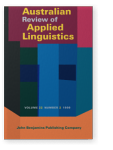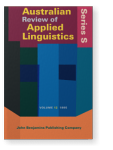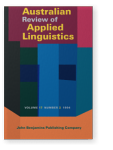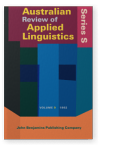Ian G. Malcolm
List of John Benjamins publications for which Ian G. Malcolm plays a role.
Journal
2018 The representation of Aboriginal cultural conceptualisations in an adopted English International Journal of Language and Culture 5:1, pp. 66–93 | Article
The Aboriginal inhabitants of Australia encountered varieties of English as a language of colonisation from 1788. Through processes of nativization, Aboriginal people have made English a valid form of expression of their culture and worldview. For this to happen it was necessary for the input… read more
2017 Embedding cultural conceptualization within an adopted language: The English of Aboriginal Australia Cultural Linguistic Contributions to World Englishes, Wolf, Hans-Georg, Frank Polzenhagen and Arne Peters (eds.), pp. 149–169 | Article
Although a minority of Indigenous Australians still use their heritage languages, English has been largely adopted by Aboriginal and Torres Strait Islander people as their medium of communication both within and beyond their communities. In the period since English first reached Australia in… read more
2013 Aboriginal English: Some grammatical features and their implications Teaching Creole-Speaking Children: Issues, concerns and resolutions for the classroom, Wigglesworth, Gillian (ed.), pp. 267–284 | Article
Aboriginal English has been documented in widely separated parts of Australia and, despite some stylistic and regional variation, is remarkably consistent across the continent, and provides a vehicle for the common expression of Aboriginal identity. There is, however, some indeterminacy in the way… read more
2007 4. Cultural linguistics and bidialectal education Applied Cultural Linguistics: Implications for second language learning and intercultural communication, Sharifian, Farzad † and Gary B. Palmer (eds.), pp. 53–63 | Chapter
Many Australian Aboriginal school students use Aboriginal English in home and community contexts. This dialect differs from the Standard Australian English of the school system in linguistic form and conceptual basis. Cultural linguistics provides a means of analysing the conceptual differences… read more
2003 The pragmatic marker like in English teen talk: Australian Aboriginal usage Pragmatics & Cognition 11:2, pp. 327–344 | Article
This study reports on the use of like in Aboriginal English teen talk. The analysis of a sub-corpus of 40 adolescent texts from a corpus of 100 narratives by speakers of Aboriginal English in Western Australia revealed that like is often employed by these speakers, and that it achieves a multitude… read more
2001 Aboriginal English: adopted code of a surviving culture English in Australia, Blair, David and Peter Collins (eds.), pp. 201–222 | Article
2000 Event and story schemas in australian aboriginal English discourse English World-Wide 21:2, pp. 261–289 | Article
The Yamatji people of Western Australia, although largely monolingual speakers of English, maintain an Aboriginal English variety for purposes of intra-group communication. A corpus of forty oral narratives by young Yamatji speakers was analysed and interpreted by a cross-cultural research team.… read more
1999 English and inclusivity in education for indigenous students Australian Review of Applied Linguistics 22:2, pp. 51–66 | Article
According to recent survey evidence, Indigenous students, at least in schools where their numbers are significant, have not, in general, been meeting the performance standards in literacy which have been set for Australian students in Years 3 and 5. Among factors to which this is attributed are… read more
1995 Innovation in university language teaching: Intensivity and immersion The Hard Work–Entertainment Continuum: Teaching Asian languages in Australia, Kirkpatrick, Andy, Yong Zhong and Helen Kirkpatrick (eds.), pp. 53–63 | Article
1994 Aboriginal English inside and outside the classroom Australian Review of Applied Linguistics 17:2, pp. 147–180 | Article
It is argued that Aboriginal children’s English is different inside and outside the classroom largely because characteristically, inside the classroom the Aboriginal children do not have the freedom to determine the discourse pattern which they have outside the classroom. This is illustrated on… read more
1992 Lote in higher education: Possibilities for intensive and immersion approaches Language Teaching and Learning in Australia, Mann, Chris and Richard B. Baldauf, Jr. † (eds.), pp. 69–82 | Article
A joint research project between Edith Cowan University and the Guangzhou Foreign Language University, China, is seeking to find out whether university students achieve greater proficiency than otherwise when instruction is given intensively or by immersion approaches. This paper situates the… read more
